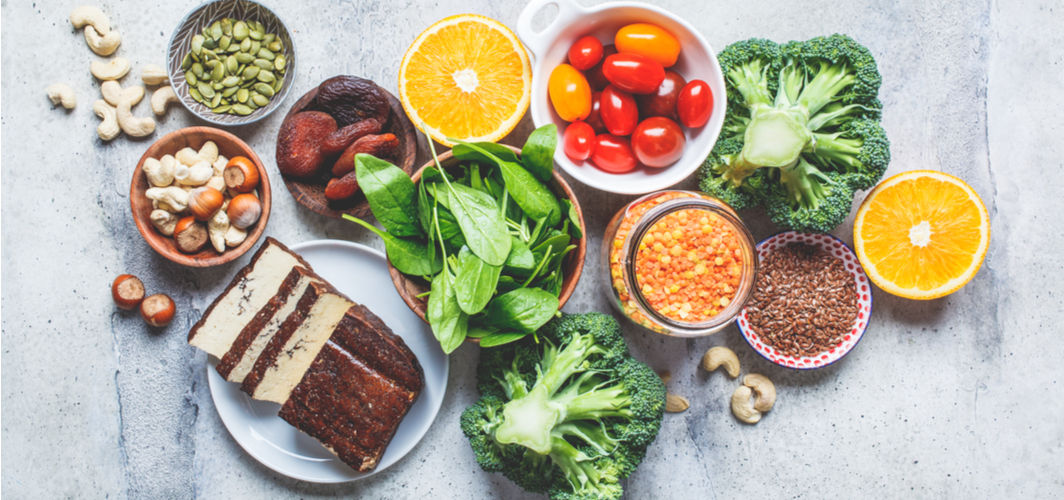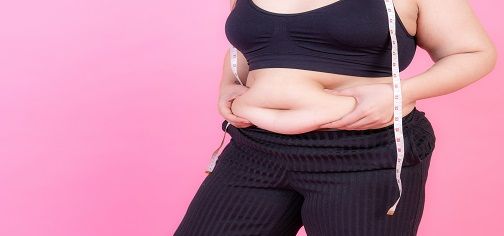General Health
Six Plant-Based Food Items That Replenish The Iron In Your Body
3 min read
By Apollo 24|7, Published on - 13 April 2022, Updated on - 23 February 2023
Share this article
0
115 likes

While most of us believe animal-based foods are the best source of iron, there are several plant-based foods that can help maintain iron requirements in your body. Iron is an important micronutrient that is necessary for the growth and development of the brain, hormones and various cells in the body. Iron is also required for the production of haemoglobin, which carries oxygen across the body. Let’s find out the best plant-based sources of iron.
How much iron is required by the body in a day?
The recommended dietary allowance of iron is 11 milligrams (mg) a day for men and 15 mg for women. The requirement for iron increases to 27 mg a day during pregnancy and reduces to 8 mg a day during lactation.
Plant-based food sources of iron
1. Dark leafy vegetables
Dark green leafy vegetables such as spinach, mustard greens, kale and beet greens are rich in iron. A study found that consumption of green leafy vegetables increases the haemoglobin and vitamin A (retinol) levels in the body. It is advised to boil or saute the vegetables to reap maximum benefits.
2. Beans
Different types of beans such as kidney, black, pinto, navy, chickpeas, and soybeans are rich sources of iron. Around 100 grams of white beans contain 3.7 grams of iron. A comparative study has shown that white beans have more bioavailable iron than red and other types of beans. The higher the bioavailability, the better the absorption of iron in the body.
3. Lentils
Lentils are a high-protein dietary staple in every household and can range in colours from red, yellow, or orange to black, brown, and green. 100 grams of cooked lentils contain around 6.59 mg of iron. Lentils are also a good source of prebiotics, which improve iron absorption in the body.
4. Potatoes
Potatoes, especially the unpeeled ones, contain significant amounts of iron. One large unpeeled potato contains around 3.2 mg of iron. Potatoes also have vitamin C in them, which is essential for the absorption of iron in the body. One can consume unpeeled baked potatoes to prevent iron deficiency.
5. Whole grains
Studies have shown that whole grains have higher iron content than processed grains. Some whole grains such as amaranth, oats, and quinoa are rich in iron, fibre and various antioxidants. A cup full of cooked oats, quinoa and amaranth contains around 3.4 mg, 2.8 mg, and 5.2 mg of iron, respectively.
6. Nuts and seeds
Peanuts, almonds, walnuts, cashews, pine nuts, and pumpkin seeds are high in iron and can help prevent anaemia. 100 grams of pumpkin seeds contain approximately 8.8 mg of iron. These nuts and seeds are also a good source of healthy fat, which helps in better absorption of iron.
Takeaway
Your food contains two types of iron; heme and non-heme. While meat, seafood and poultry contain both heme and non-heme iron, plant-based foods only contain non-heme iron. Non-heme iron is abundantly present in spinach, broccoli, beetroot, potato, pomegranate, whole grains and beans. Deficiency of iron can result in anaemia, which causes fatigue, pale skin, headache, dizziness, difficulty in maintaining body heat and inflammation of the tongue.
Are you experiencing signs of anaemia?
General Health
Leave Comment
Recommended for you

General Health
The Science Behind the Twitching of Eyes
Eye twitching usually occurs due to stress, consumption of excess caffeine or alcohol, exposure to pollution, the intake of some medicines, etc. but can sometimes indicate an underlying condition.

General Health
Morbid Obesity: What You Need To Know
In a country like India, where a fat person is considered healthy, it is likely to see more cases of morbid obesity. It is a condition where the person is 30-40 kg heavier than their ideal weight. As much as diet is believed to be the primary factor, the major causes are genetic, hormonal, and physical. Hence, changing your lifestyle and maintaining the ideal weight for a healthy life is essential.

General Health
Brain Aneurysm: How Is It Different from a Stroke?
The cause of a stroke is either a blockage in an artery or an artery rupture, whereas the cause of an aneurysm is not known.
Subscribe
Sign up for our free Health Library Daily Newsletter
Get doctor-approved health tips, news, and more.
Visual Stories

Plant-based Foods That Are a Great Source of Iron
Tap to continue exploring
Recommended for you

General Health
The Science Behind the Twitching of Eyes
Eye twitching usually occurs due to stress, consumption of excess caffeine or alcohol, exposure to pollution, the intake of some medicines, etc. but can sometimes indicate an underlying condition.

General Health
Morbid Obesity: What You Need To Know
In a country like India, where a fat person is considered healthy, it is likely to see more cases of morbid obesity. It is a condition where the person is 30-40 kg heavier than their ideal weight. As much as diet is believed to be the primary factor, the major causes are genetic, hormonal, and physical. Hence, changing your lifestyle and maintaining the ideal weight for a healthy life is essential.

General Health
Brain Aneurysm: How Is It Different from a Stroke?
The cause of a stroke is either a blockage in an artery or an artery rupture, whereas the cause of an aneurysm is not known.